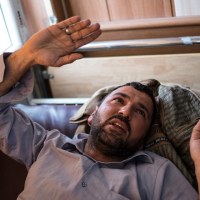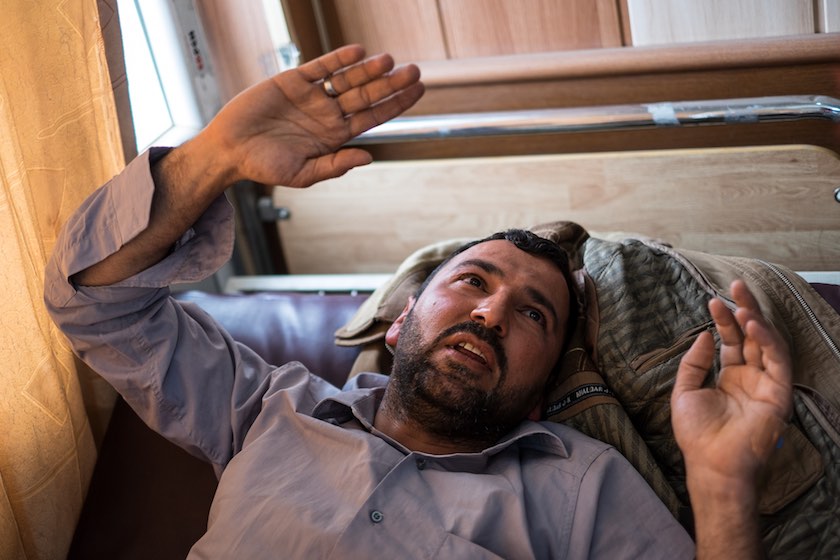Mohammed’s face is defiant behind the oxygen mask. He pulls it away, wheezing.
“I’ll stay here in Taza… I was born here… I’ll die here.”
He replaces the mask, gasping for air.
ISIS recently launched a barrage of chemical rockets filled with chlorine and mustard gas on the small Iraqi settlement of Taza, killing a small girl and injuring thousands of civilians. Four of the rockets hit Mohammed’s neighborhood, one of which impacted just a few steps from his playing children.
“My family was with me… I was in the middle of it,” he said.
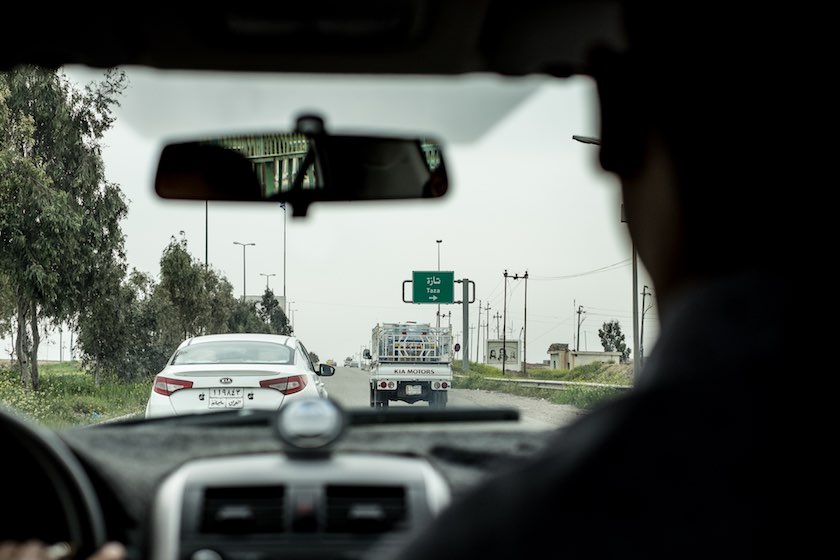
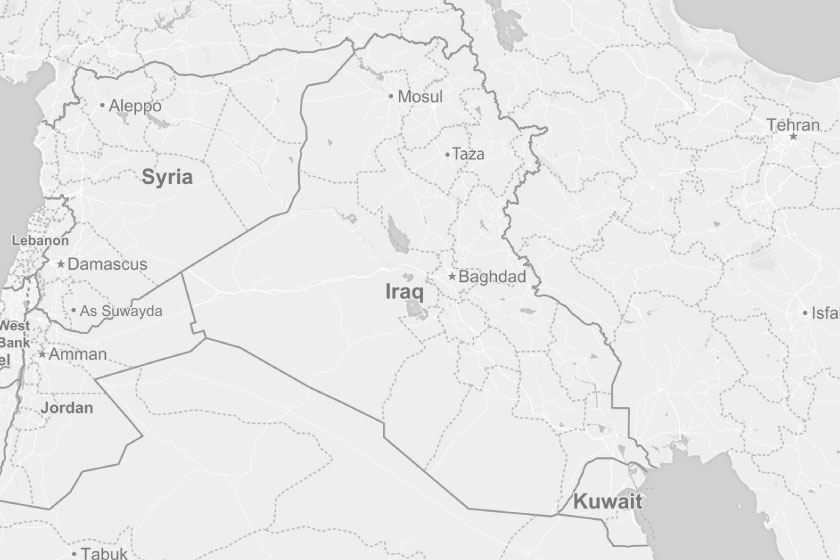
Families formed a line out the clinic door, hoping to be treated. Many report inexplicable itching, strange rashes, nosebleeds, loss of vision, and difficulty breathing—like Mohammed. But the potential health problems get even worse from there: permanent blindness, sensory nerve damage, and the kind of lasting genetic contamination that can lead to birth defects in children who are not even conceived yet.
With patients pouring into the Taza clinic, volunteer doctors are trying to help in any way they can, but few people here know how to treat injuries like these. The small clinic is equipped only for simple injuries and illnesses, not surgery—much less weaponized chemical contamination.
Meanwhile, the community’s request for assistance has been mostly met with silence.
“You are the only ones who have come, nobody else,” one doctor said as we arrived.
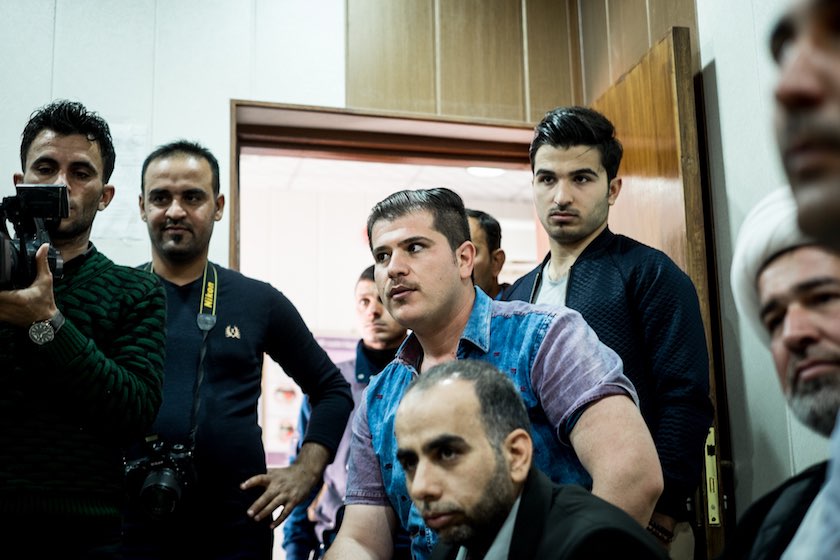
Alongside our partners at Iraq Health Aid Organization, we provided treatment for dozens of families. We handed out medications and took down each patient’s information. Now we are making plans to return with even more in-depth treatment.
One woman who preferred to remain anonymous told us, “The rocket hit a few hundred feet from my house, and my four children and I have had trouble breathing ever since, like we were suffocating.”
We asked about the boy lying next to her. His shirt was bloodstained and his nostrils plugged up with tissue.
“Even if I put tissue in his nose or hold his head up to stop the bleeding, it doesn’t work. A doctor has to come to our house, give him an injection, and then bleeding stops for awhile.” She continued, “All of us have trouble breathing, but only this child is bleeding.”
According to one of the volunteer doctors, one side effect of the chemicals used in the attack is that they inhibit the body’s ability to produce white blood cells. This weakens the immune system, leaving survivors vulnerable to disease and unable to clot wounds—thus, the boy’s near-constant nosebleeds.

When the clinic finally emptied and everyone had gone home, our hosts insisted on taking us to see some of the impact zones where the rockets hit. A local man quietly handed everyone a surgical mask before we loaded into the convoy.
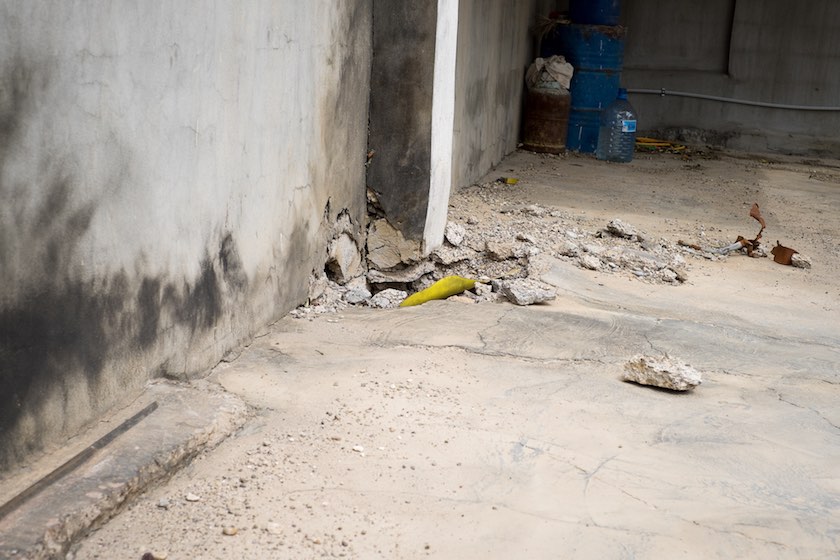
We pulled up to the first home and got out. The breeze carried a stinging smell, like chopped onions and rotten eggs. A friend motioned toward something moving on the ground—a twitching bird. We realized there were at least half a dozen other birds nearby either dead or dying from the gas.
Our military escort seemed to be arguing with a man in sunglasses who had come out to meet us. The man shouted, “Of course we’re grateful! If you didn’t help, we’d be dead! Nobody else even asked about us, they didn’t even come!”
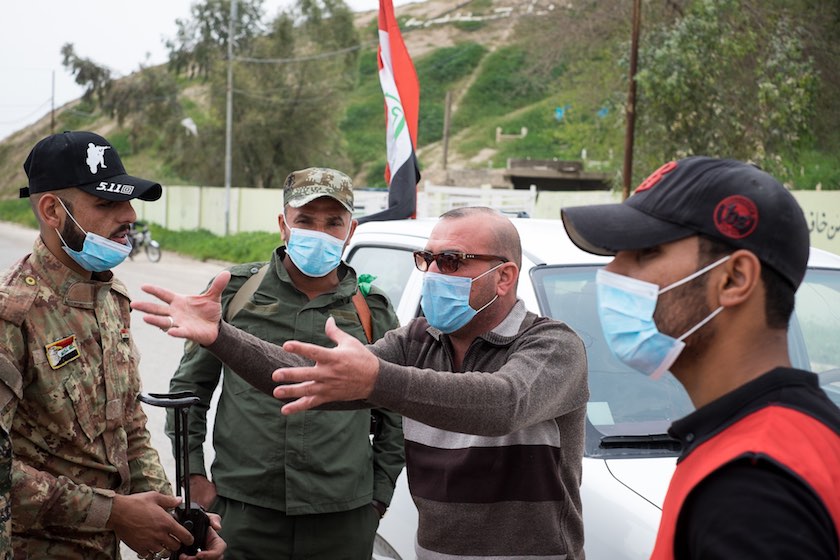
He pointed at his front porch where a missile hit and then at his eyes “I can’t see anything! What am I supposed to do? My whole family is sick! We need more help.”
It was a bittersweet departure when our team left Taza. Families received treatment and sat with a qualified doctor for the first time, but there is still so much need. For example, the clinic has requested more specialized care, specifically from a pediatrician to help care for the children, an ophthalmologist to help people deal with loss of vision, and a dermatologist to help with various skin problems and sensitivities.
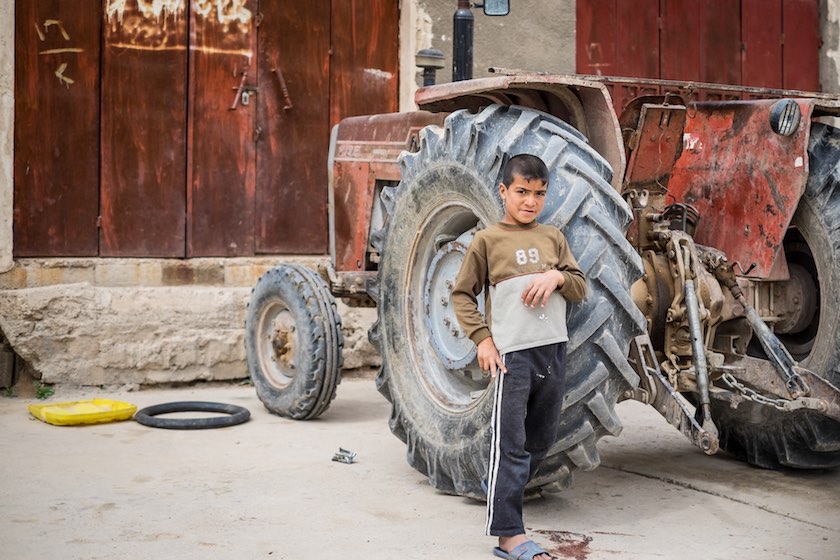
We often debate what to share and what to withhold in public updates like this—we don’t want you to become discouraged! For us, there is always a hopeful silver lining to these stories. It’s not always easy to see, especially when children are sick and parents are shouting, but it’s there.
That silver lining is you.
You never give up. When others have forgotten or don’t care, you keep showing up. You love anyway. You are ever-present, and we’re so grateful!
Whenever we’re confronted with last-minute, high impact requests like the ones we heard in Taza, our monthly sponsors are the ones who enable us to respond. If it weren’t for all of you who give each month, a quick response to urgent needs just wouldn’t be possible.
We’ll continue to share updates from the front lines, the good and the bad. As we do, we need you to come alongside these brave families and help them rebuild. Click below to become a monthly sponsor.
Photos (top to bottom): Mohammed, injured in a recent ISIS chemical attack; en route to Taza with medical supplies shortly after the attack; meeting with residents and officials of Taza; the impact site of a chemical rocket; a man whose house was hit pleads for help; Taza’s children continue to suffer from exposure to chemical agents.

